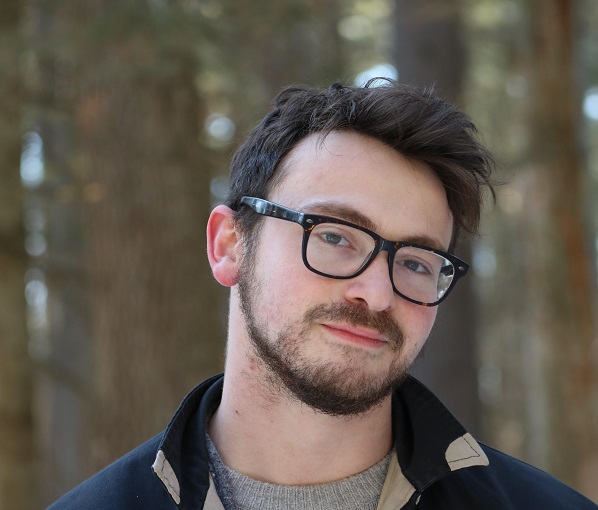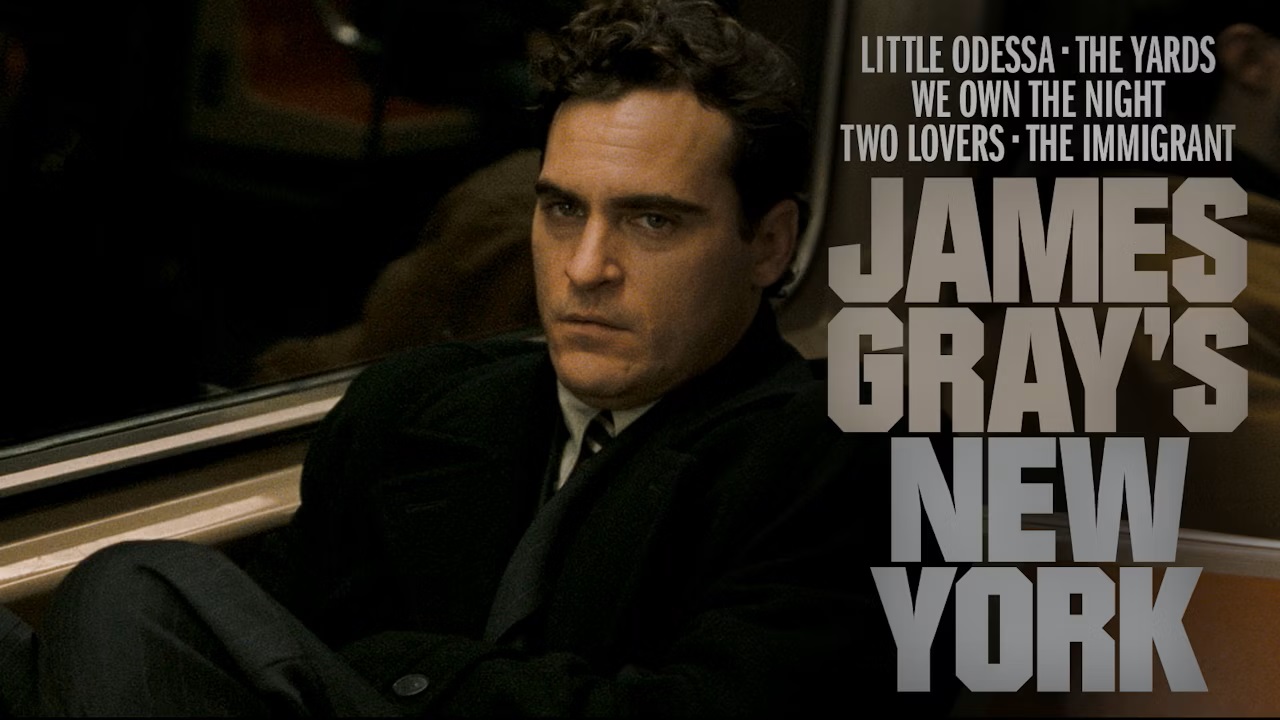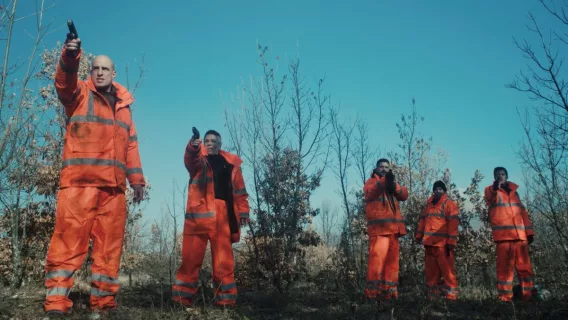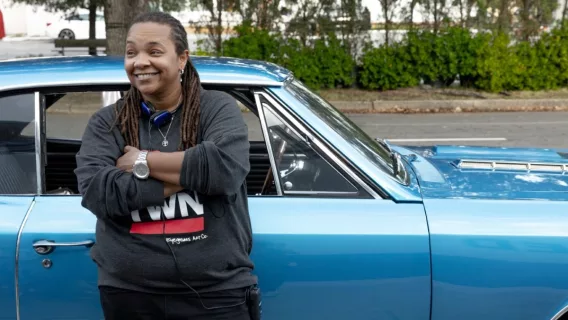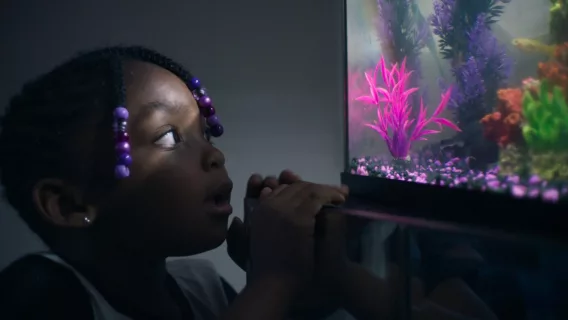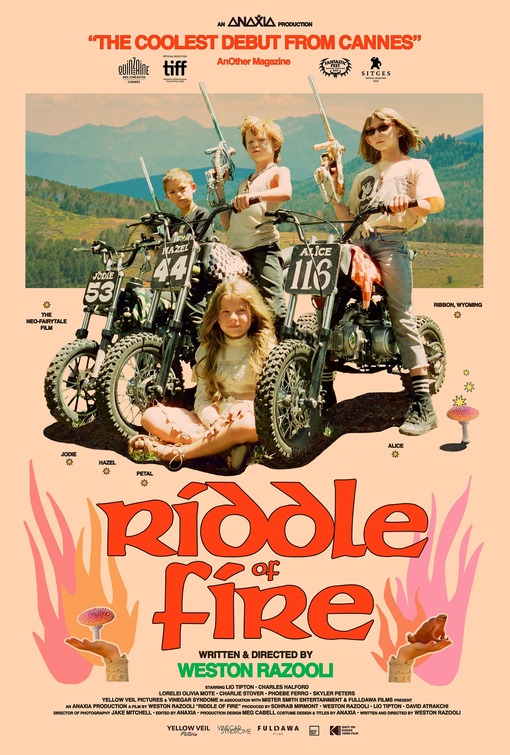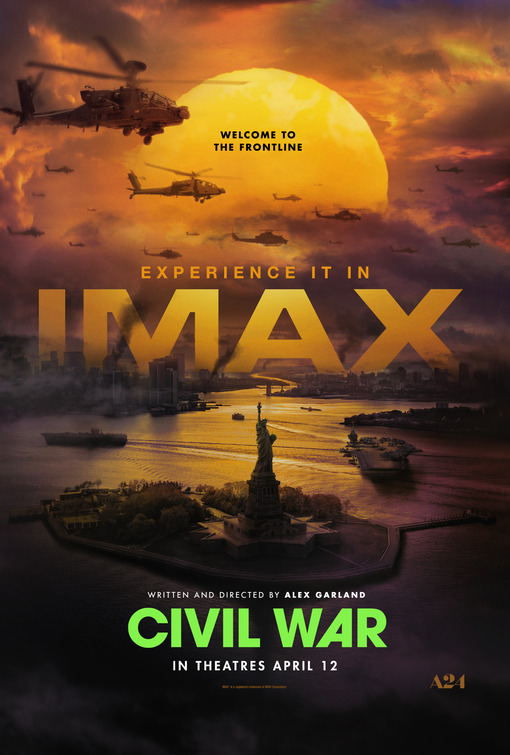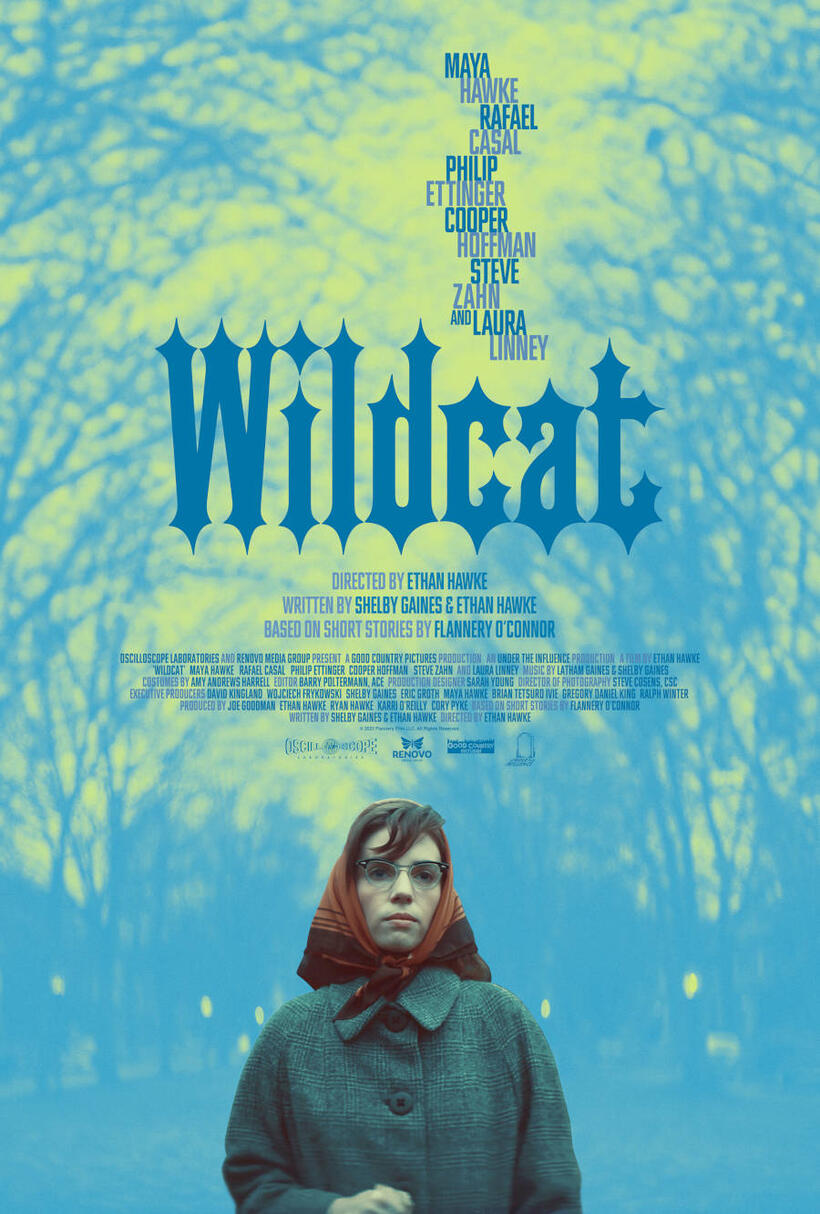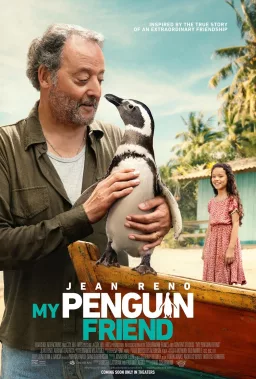A modern American master, James Gray makes richly textured, near-operatically expressive melodramas that swirl together history and myth in the realm of the personal.
The roots of his uniquely classical style of filmmaking—at once exquisitely controlled and emotionally intense—reach back to his native New York and into his family’s Russian-Jewish immigrant past, exploring the tragic burden and totality of one’s blood ties. Gray has often been described as one of Hollywood’s last great “classicists,” owing to his innate grasp of how the rigorous craftsmanship associated with a classical style can subvert traditional, intergenerational narratives and illuminate the inner complexities of characters struggling against them.
When he made his feature debut with 1998 crime-drama “Little Odessa,” about an ice-cold hitman (Tim Roth) returning home to the Russian-Jewish enclave of Brighton Beach, Gray followed it up with a pair of New York crime sagas. “The Yards” (2000) and “We Own the Night” (2007), both starring Mark Wahlberg and Joaquin Phoenix, captured filial obligation with a fraught, fiercely intimate poetry, each depicting tight-knit New York families divided by cycles of corruption and consequence.
Gray’s romantic drama “Two Lovers” (2008), also set in Brighton Beach, next marked a turning point in his career, away from the world of cops and crooks and toward other, equally compelling kinds of familial drama. Inspired by Dostoyevsky’s White Nights, it centers on a mentally volatile young man (Phoenix) who moves back in with his parents (Isabella Rossellini and Moni Moshonov) after a breakup and soon finds himself torn between two women (Vinessa Shaw and Gwyneth Paltrow). Finally, with historical epic “The Immigrant” (2013), Gray brought a rapturous, shimmering realism and emotional sweep to the tale of a Polish immigrant (Marion Cotillard) navigating 1920s New York after her arrival at Ellis Island.
“James Gray’s New York,” streaming on the Criterion Channel, collects together these first five films in Gray’s body of work. (“Armageddon Time,” released in 2022, is not included, though Gray calls it his most directly autobiographical work; set in 1980, in the Queens milieu where he was raised, it depicts a sixth-grader’s end of innocence as he grows aware of the privilege, oppression, and injustice shaping his circumstances.)
In conversation with RogerEbert.com to mark the occasion, Gray reflected on his philosophy of filmmaking, the larger forces moving within the stories he’s chosen to tell, and the influence of his Jewish cultural identity on his cinema.
This interview has been edited and condensed.
How’s your morning going so far?
My day has been entirely too active for 9:45 a.m. When you have three children, two of whom are going off to college fairly soon, you find yourself doing chores of an entirely different nature than you did when they were four. Today involved meeting college counselors. It’s depressing, too, because I love my children with a blind partiality, and I know they’re leaving my home soon. That was melancholy and too much information, but you asked.
Not at all. I appreciate you taking the time to speak today. The last time we spoke was in Boston, around “The Lost City of Z,” which you made following “The Immigrant.” I still recall the words you left me with as we ended that interview, a quote from George Eliot: “The greatest benefit we owe the artist, whether painter, poet, or novelist, is the extension of our sympathies.” That was on my mind as I revisited these earlier films.
The George Eliot quote you’re talking about, maybe it’s very sententious of me, but I’ve repeated it many times, because I repeat it to myself. Strangely, part of the reason I have to repeat it a lot, aloud to others and to myself internally, is that it’s not in vogue. It’s not what our culture always values. When you’re making pictures, either you’re doing it with the grain or against the grain—not always consciously, by the way, but you try to stay either unfashionably or fashionably true to yourself. I have certain things that I like to repeat to myself and to others, that keep me on the path that I’d like to pursue—for good or for ill, by the way.
You’re often called a classical filmmaker. One element present across these films is that your characters exist within the architecture of classical narratives but still push back against their currents, to resist the paths laid before them. In a way, the inexorability of those narrative structures creates a tension that clarifies the characters’ struggles and their souls.
Recently, I had the opportunity, given a pair of rather brutal and certainly crippling strikes that hit our industry, to take some time to read. One of the only things that Sophocles had ever written that I hadn’t read already was “Ajax,” and at the suggestion of a close friend, and also because of the pressing need to be as pretentious as possible, I decided I would read “Ajax.”
The reason I mentioned this is because you read that and you say to yourself, “Okay, this was written thousands of years ago, but it has total relevance.” And why is that? The reason is that it has a focus on, if not a total preoccupation with, the idea of moral and ethical dilemmas writ large: that the characters are in a constant state of crisis both externally and internally, and that the forces that they encounter are greater than they are. It’s very hard to put your finger on this as a young person; now that I’m 54, with some measure of distance, I can see that, when I was a teenager, I was very lucky—though at the time, I hated it, but I was very lucky—to have to read a lot of this literature. When you become inculcated in Sophocles, Euripides, Homer, Virgil, and so on, you tend to expect, want, and crave a certain element from your drama.
What you’re talking about, in some ways, is the drippings of that, making their way into the work, again for good or for ill. It’s difficult, because our culture is extremely capitalist. And in such a context, it’s very important to delineate easily accessible ideas of good and evil, and also to extend a certain positivity through art: in other words, promotion of a certain status-quo-plus. What you see in movies that I abjure is easy moralizing and a simplistic attitude towards our ethical and moral cores, which are ever in flux. Today, you see a lot of judgments made, nice people doing nice things or very bad people doing very bad things. And I think the world is a bit more difficult and complex than that. I just try to convey that through the work. Now, that doesn’t mean it succeeds. I mean, you hope it does, but my own view is that this kind of work tends to wear very well, because that’s who we are, really. It’s not lying to us. I’ve tried to pursue that line of honest inquiry.

I always appreciate the complexities in your depiction of assimilation as not neutral or natural but rather an inherently violent, self-loathing, self-destructive act. A line from “The Immigrant” comes to mind: “Has it become a sin for me to try so hard to survive? Is it a sin to want to survive when I have done so many bad things?”
The instinct is to say that we act out of self-interest, but this is quite wrong, I think. We act out of perceived desire, which is not the same as self-interest. I’ve seen people do brutally self-destructive things on a fairly routine basis. When you perceive that, you have to ask yourself, “Why is it that we’re filled sometimes with self-loathing, even dare I say self-pity, which is a very unattractive quality?” Anger, depression, but also good humor: all these things are part of who we are.
If you’re taught to respond to art in a way that is very direct, a lot of times, one will, I think, see this kind of moral ambiguity as muddled. That feeling of incompleteness, I’ve personally always cherished in cinema and in art in general, the idea that there isn’t the answer, that people don’t always redeem themselves so perfectly—although, sometimes, they can. The focus is: can you remain true to yourself, for good or for ill? It’s about being true to yourself and, in the end, you hope that means something to somebody.
Relationships with parents and ancestors is central to your filmmaking as well, and that incompleteness is reflected there, too, in the lack of closure your characters have with their relatives. Those relationships are never resolved, but they end, and they have to deal with that complexity. Revisiting your earlier work at this time in your life, I’m curious if you’ve been reflecting on the role of family in your films.
The funny thing is, I’m really quite sick of myself at this point. I’ve talked too much, and I’d like to have the work speak more than me. I’m nauseated by myself. It sounds ridiculous, but I’m so tired of myself that I haven’t done a lot of these. I’m doing a couple of interviews today, but that’s about it, because I love Criterion, and I love what they do. I want to support them. But I’m very uncomfortable talking about my own films. I love talking about other movies, particularly older films. And I love talking about art in general, about politics and history. But about my own work, it’s very uncomfortable, because I have no distance from it. Some days I wake up, and I think that the work has been okay. And other days, I wake up, usually more than the days where I think they’re okay, and I’m very disappointed in myself. It’s not a pleasant place to be. I can only say that the ambition is this, and whether it reaches that is for other people to decide.
But what we’re talking about, this eternal lack of closure, is part of who we are. Part of our relationships with family, which are the most direct relationships that we have, is defined by this lack of completeness, of wholeness, answers, proper revenge and proper love. Instead, they’re imperfect. And so our art, I think, has an obligation to reflect that imperfection, not to embrace perfection. Because you find beauty and transcendence in the imperfect, not in idealizing it.

“Armageddon Time” is more directly autobiographical than your previous films, and the contradictions you uncover—including those specific to Russian-Jewish immigrants’ standing in ’80s New York, that idea of existing as both the oppressor and the oppressed—are as rich as those present in any film you’ve made. So much is contained in the character of Aaron (Anthony Hopkins), who instructs his grandson to be a “mensch” and stand up to bullies but also to make the most of his privilege and get ahead. I know we’re talking about your earlier work today, but…
It’s fine. It’s all the same. You raise the point about the mensch, in particular, and how it relates to “Armageddon Time.” One of the ideas I was trying to communicate with that film — which I suspect was a difficult haul for some people, or at least uncomfortable as hell — is that, when one contextualizes things by saying, in that case of that film, that it’s about “white guilt,” a part of why I felt that such a criticism was really, profoundly misguided is that it’s a reduction of the idea of that film in its concept of mensch-ness.
I feel that way because “Armageddon Time” is not about whether the kid will be a mensch or not. In fact, the kid—as you will recall from the story—actually makes the correct decision at the end, in the police station, and he does confess that it was all his idea. But the police don’t want to hear it. And the father doesn’t want to hear it. And it is pushed aside. And so, it is not really about his guilt. He’s not guilty; he actually does the right thing at the end. What actually happens is that the culture is not open to his mensch-ness, and that the forces of ideology, history, politics, and social aspects of our culture are overwhelming his idea of, and his ability to be, a mensch. And so the forces at play are larger than his own moral and ethical foundation.
This idea is, I think, pretty clear in the movie, but it’s also very unpleasant, because we like to think that we control everything. And so the idea of critiquing the moral decisions of the kid, however misperceived I believe some felt they were, even if they weren’t perceived correctly, is lacking an understanding of a larger idea that’s pretty clearly at play in that particular film and also in the other films I’ve made. It’s the idea that your ability to choose, your ability to act, and your ability to exist in a “correct” moral and ethical framework is really quite limited. The forces of economics, history, and our social pressures are much greater than we tend to think they are.
In the case of that film again, the boy Johnny, who played my friend: does he have “agency,” this ridiculous word we use now? And the answer is, in that story, he does. He runs away from home, which itself is a fraught decision: to go away from his grandmother, who’s ill. He does that. But, despite all the agency he might have, it doesn’t mean he’s going to win. You can have all the agency you want, but sometimes there are greater forces at play. And this has been a constant theme, not consciously, that has clearly emerged through the work. It’s something I really believe: we have a limited ability to be the best we can be. All we can do is to try to achieve some kind of mensch-ness. But our mensch-ness is often dictated from without.
This intersects with James Gray’s New York, the city as you sought to portray it in your films, both this symbolic entity and its intersections with your own family history. Your characters move toward these moments of revelation, in understanding how those larger structures inform the course of their lives.
Philosophically, I believe this. The thing about New York is that the layers of history are right there for you to see. I don’t love Fellini’s film “Roma,” believe it or not. I think it has brilliance in it, of course, and he’s my favorite director of all time, to the extent I even have to say something so stupid, because of all the other directors I love all the time. But in that film, there is something so remarkable. They’re trying to build a subway and they come upon these gorgeous Roman frescoes, which start to fade the minute the air hits them. It’s the irretrievability of history, and yet the ever-present importance of it, at the same time.
Growing up in New York, I always felt the history of my grandparents and my parents affected me. The trauma of my grandparents affected me. Their experience in the old country affected me. You felt, in New York, the drippings of their experience, to use that expression again. It’s a somewhat difficult thing to articulate. I suppose that feeling, in addition to my own education, helped shape this concept that I have, which you said is connected to mensch-ness, which I think is interesting. You want to try to be a moral actor or an ethical person, but there’s only so much you can do, given the context in which you’re born and living and exist.
I was shaped very much by the New York of the ‘70s, which was an extremely non-functioning version of New York. It was pretty dilapidated, and in some ways better than what it is now, but in many ways much worse. It was really dirty, and I don’t romanticize that period at all. It’s the brutality of it, on a daily basis, that was sometimes functioning as its own form of heroism. That certainly tattooed itself onto my brain, which also might be part of what you’re seeing. Am I making any sense at all?
You are.
With “Armageddon Time,” I tried to put the history of my own family in there as much as I could, with all of their complexity, some of which is quite uncomfortable and very unseemly. And I know that “Armageddon Time” is not streaming on the Criterion Channel, but you asked about it, and it is in this continuum. The preoccupations are the same, which is this idea that forces larger than we dictate who we are.

“Little Odessa,” “Two Lovers,” and “Armageddon Time” are set within secular Judaism more directly than the other films you’ve made. I’m curious what you feel you unlocked of your artistic voice through the cultural specificity of these films.
That’s a great question, and it’s very hard for me to answer that because, you know, I made them. I haven’t seen “Little Odessa” in 20 years, at least. “Two Lovers,” I saw more recently, in 2013, because I got an archived print that I had to check. And so, the “Little Odessa” part of that question is very hard for me to answer. I have quite a dim memory, now, of the movie, though I did watch the first five minutes of it for a TIFF Cinematheque event, and I was so disgusted I had to walk out of the theater.
In the case of “Two Lovers,” and also “We Own the Night” and “Armageddon Time,” I should say I am not a practicing person, religion-wise, I don’t find much value in the ritual. Maybe I’m wrong about that, because maybe the ritual matters quite a lot. But I view myself as very culturally Jewish, because of how I was raised and the importance placed on certain ideas. The one thing I will say about that experience is that I do remember growing up with a level of fear.
You asked about “Armageddon Time,” and another point I did think was worthy of discussion around the picture is the level of fear that Jews feel — how do you put it less directly than this, but maybe I should be direct — that I think we’re almost ashamed of, and that is very unspoken in American culture except now, actually. It’s come out a bit more in the last year or so. And that fear underscores a desire to assimilate, as well as the knowledge that we haven’t.
It’s why the American studio heads were extremely reluctant to embrace their Judaism and to talk about it in the cinema. They were very good at hiding it, almost embarrassed of it. And I’ve tried to be more open about it. I don’t think we’re comfortable, because we’re white people, but we’re not white people. You know what I mean? We’re white until Hitler’s in power, and then we’re not so white. We’re white until people are yelling, “Jews will not replace us.” It’s an uncomfortable position. It’s a terrifying position. And that’s what I felt growing up: a fear. That doesn’t answer your question at all, but I’m being honest with you.
You worked with such an extraordinary roster of collaborators across these films, from the actors you’ve worked with multiple times, like Joaquin Phoenix and Mark Wahlberg, to some of the greats, like Isabella Rossellini and James Caan. Looking back on this period of your filmmaking career, what do you remember most about your collaborations with these actors?
I mostly feel extremely grateful. We were just talking about fear, but the flip-side of that is that I have benefited massively from my privilege. And I feel so fortunate to be able to work with geniuses. And I mean, there’s no more complex or interesting way to put it than that. I have been able to work with the best of the best, with very generous and beautiful people, and it’s been very moving to me. I hope, of course, that I have many more and better films in my future, but certainly up until now, if you had asked me to look back to when I was 20, where I thought I would be at this point in my life, to say I’ve worked with all these fantastic people has been an incredibly enriching experience.
I’ve learned so much. It’s an old expression from [ballet master Sergei] Diaghilev; he said, “Étonne-moi,” which means, “Surprise me.” The number one thing you get from brilliant people is that they’re always surprising you with their choices. And the choices always seem obvious in retrospect, but they never are in the moment. Their choices are always wondrously unexpected. And I’m so profoundly grateful for that. I hope that they have enjoyed working with me to the extent that I allow them the space to be. But that’s all that it is, from my perspective. From my end, what I can give them is to help them, if they need it, and give them the space to be brilliant.
The list is endless of people whom I’ve adored. Vanessa Redgrave was in my first movie, and Maximilian Schell and Tim Roth. It’s not just people whose names we know, but tons of people whose names we don’t know: this character actor named Victor Argo, who was in plenty of Marty Scorsese’s movies. He was a brilliant actor; he’s in “The Yards.” All these wonderful character actors taught me so much. I just feel really grateful—as nauseating as that sounds.
Thank you so much for this time, which went by too fast.
I didn’t expect to be talking about “Armageddon Time” as much as we did. It’s interesting. It should have been included, but of course they didn’t have the rights to it. They couldn’t get it, but it’s so much in the red vein of all these pictures.
“James Gray’s New York” is currently streaming on the Criterion Channel.
